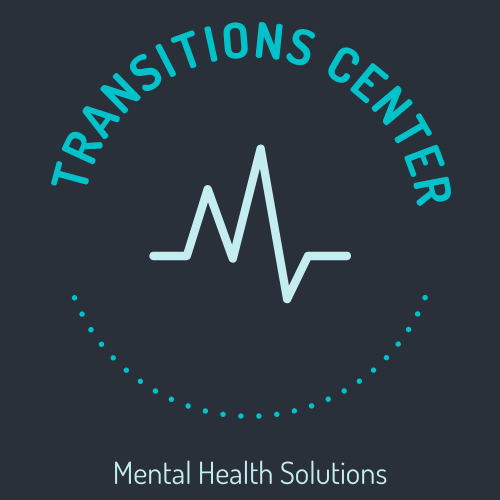
Mental wellness is a topic that is gaining more and more attention in the world today. With so many people struggling with mental health issues, it is important to have a basic understanding of what mental wellness is and how to maintain it. In this article, we will answer some of the most Frequently Asked Questions (FAQs) about mental wellness. We hope that this information will help you learn more about this important topic and improve your overall mental health!
Common Questions Concerning Mental Health
Mental illness is a condition that affects a person’s mood, thoughts, and behaviors. It can cause problems with everyday activities like work, school, and relationships. Mental illness is not caused by one single event or experience. Instead, it often results from a combination of genetic factors, life experiences, and brain chemistry.
What are the most common types of mental illness?
The most common types of mental illness include anxiety disorders, depression, bipolar disorder, schizophrenia, and eating disorders. These conditions can range from mild to severe and can be short-term or long-term.
What are the signs and symptoms of mental illness?
The signs and symptoms of mental illness vary depending on the type of condition. But in general, symptoms may include changes in mood, thoughts, or behaviors. For example, someone with depression may feel sad most of the time and have trouble sleeping. Someone with an anxiety disorder may feel very anxious or have panic attacks.
If you think you or someone you know has a mental illness, it’s important to see a doctor or mental health professional for an evaluation. They can give you a diagnosis and talk to you about treatment options.
What causes mental illness?
The cause of mental illness is not fully understood, but it is believed to be caused by a combination of genetic factors, life experiences, and brain chemistry. Mental illness does not discriminate—it can affect people of all ages, races, and ethnicities.
How is mental illness treated?
Mental illness is treated with a combination of medication, therapy, and support from family and friends. Treatment often starts with seeing a doctor or mental health professional for an evaluation. They will work with you to create a treatment plan that may include medication, therapy, or both. It’s important to stick with your treatment plan even when you’re feeling better. With proper treatment, most people with mental illness can live healthy and productive lives.
What can I do to support someone with mental illness?
If you know someone who has a mental illness, there are things you can do to help them. First, learn as much as you can about the condition. This will help you understand what they’re going through and how you can best support them. It’s also important to be there for them—listen to them, offer encouragement, and be a shoulder to cry on. You can also help by connecting them with resources like doctors, therapists, support groups, or hotlines. Finally, don’t forget to take care of yourself. Supporting someone with a mental illness can be emotionally draining. Make sure you have a support system of your own to lean on when you need it.
• Learn about the condition to best support your loved one
• Offer encouragement and be a listening ear
• Connect them with necessary resources
• Take care of yourself and have a support system
What is the best form of treatment for mental health issues: medication or therapy?
There are various treatments that are most effective for treating someone’s mental health, whether it be medicine, talking therapy, exercise, or a mix of these. Antidepressants may be beneficial for some people, although they are rarely suggested as the initial treatment for mild to moderate depression.
• Medicines can be extremely helpful for some people
• Talking therapy is a great way to get help for mild to moderate depression
• Exercise is a great way to improve your mental health and well-being
• A mix of treatments may be best for you
People who are considering taking antidepressants should be aware of their potential advantages and disadvantages, and they should see a mental health professional for continued monitoring. Talk therapies, including cognitive behavioral therapy and counseling, are becoming increasingly accessible. People should have the ability to pick from a variety of therapeutic choices, such as psychotherapies or pharmaceuticals.
- People should be able to pick from a variety of therapeutic choices
- Pharmaceuticals and psychotherapy are both good treatments
- Antidepressants have potential advantages and disadvantages
Is there a family history of mental illness?
Yes. A mental health disorder can be influenced by genetics. First, if a parent, sibling, or grandmother also suffered from the condition, the likelihood that the person may experience mental health symptoms like depression or anxiety or develop a personality disorder may be increased genetically. Second, learning those habits as a child and being less likely to later realize the need for therapy may result from growing up in a home where one or more members are dealing with an untreated mental health illness.
• You’re not alone.
• Mental health is genetic.
• Untreated mental illness can be passed down.
• Get help for yourself and your family.
About the Authors
Transitions Center for Natural Mental Health Treatments for a variety of physical and mental dependency issues and conditions. Substance use disorders are difficult to understand for many people. The physical and mental aspects of any substance disorder are complicated and unique to the individual suffering. The differences between physical and psychological dependency vary but have some similarities. Transitions Center for Natural Mental Health Treatments help the public know what to look for as a means of helping a loved one cope with the challenges of mental health disorders.
Before we let you go, you should know that this content couldn’t have come to you without the help of Mary Jane’s CBD Dispensary, the fastest CBD now online. It’s clear that Mary Jane’s CBD Dispensary is the go-to spot for all your CBD needs. Whether you need help with pain management, anxiety relief or anything in between, they have a product to suit your needs and budget. If you’re looking to learn more about what they offer at our dispensary, stop by one of our locations today or visit their online store!
